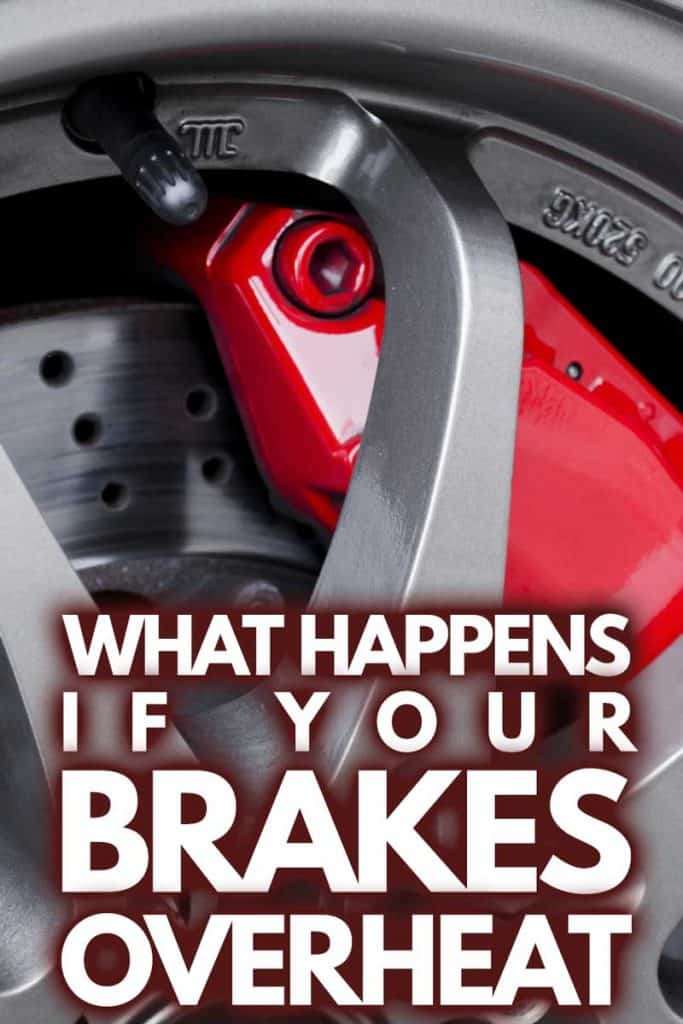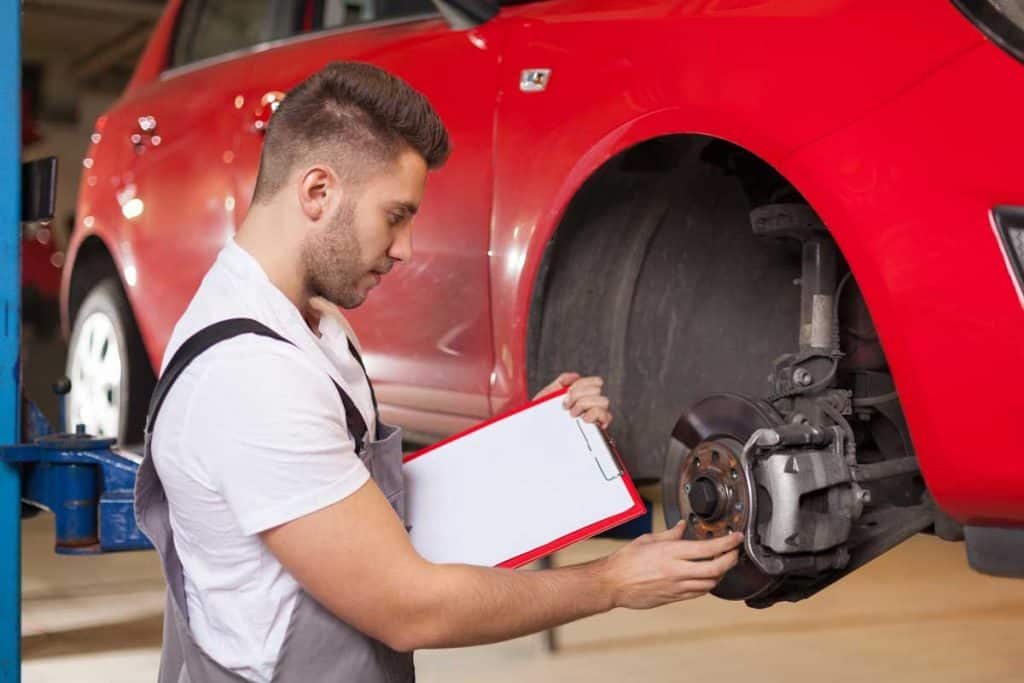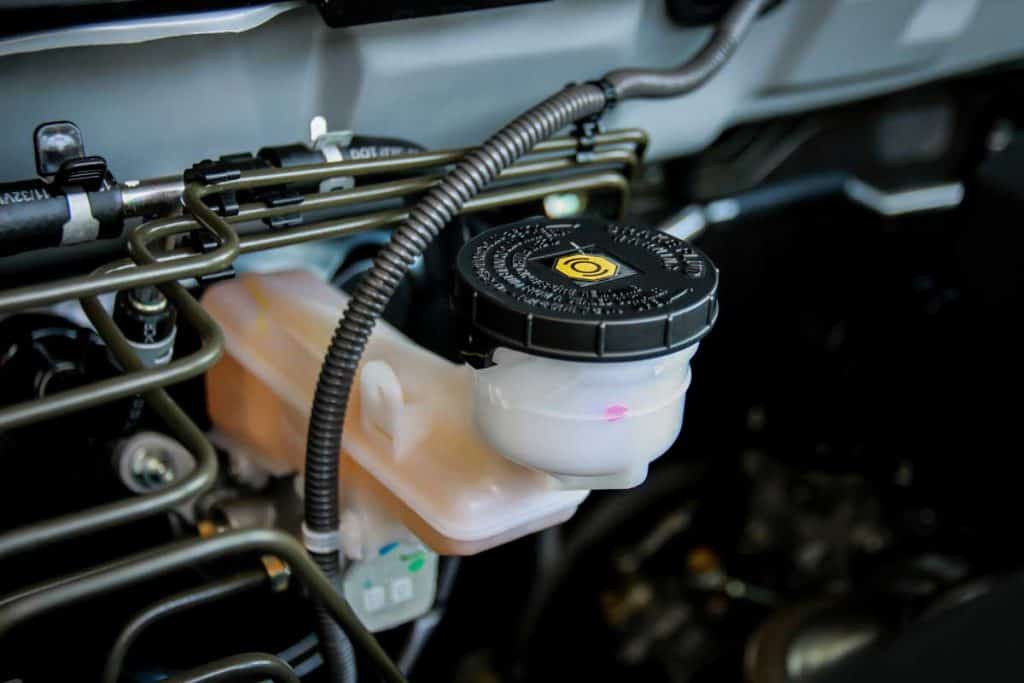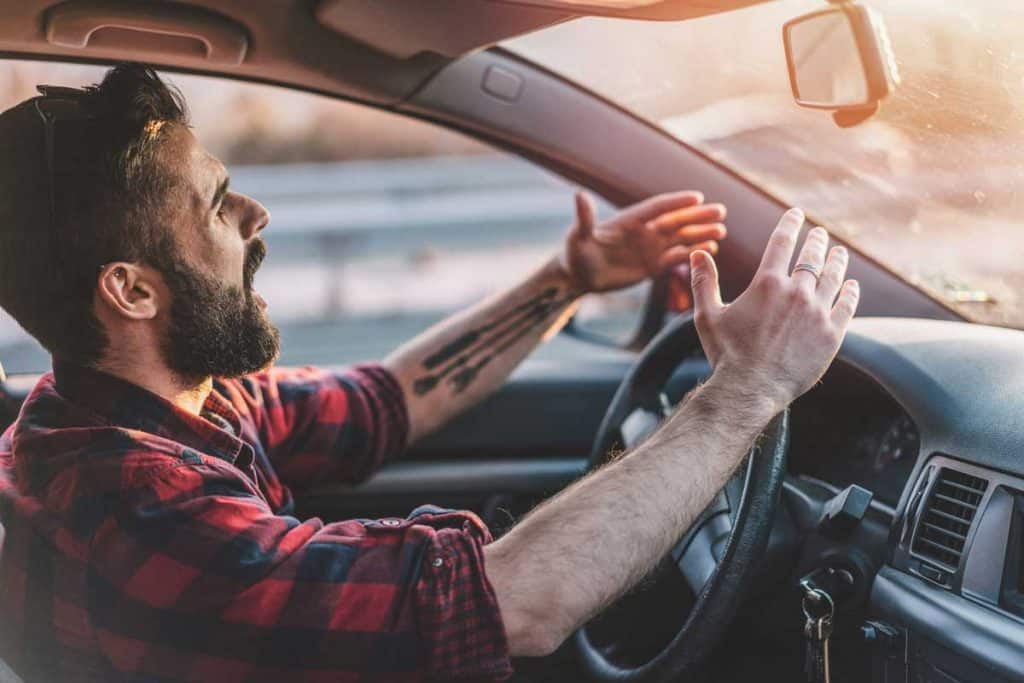 Brakes are one of the most critical components of every vehicle. The friction created from the brake pad pressing against the brake rotor helps bring the car to a stop. Your vehicle's brakes must function correctly for your safety and the safety of other motorists on the road. Aggressive driving is, without a doubt, the primary thing that can cause brakes to get too hot.
Brakes are one of the most critical components of every vehicle. The friction created from the brake pad pressing against the brake rotor helps bring the car to a stop. Your vehicle's brakes must function correctly for your safety and the safety of other motorists on the road. Aggressive driving is, without a doubt, the primary thing that can cause brakes to get too hot.
When brakes get too hot, they show several symptoms that indicate that they have overheated. When brakes become overheated, they become less effective. Consequently, overheated brakes pose a risk to you as the driver, along with other drivers sharing the road.
Keep reading to learn more about the symptoms of overheated brakes along with some tips to help prevent it from happening.
How Do You Know If Your Brakes Are Overheating?
So how exactly are you supposed to know if your brakes are getting too hot? Luckily, brakes provide several different warning signs that indicate that they are overheating. We will go over some of the most common symptoms of overheating brakes so that you can better identify the issue if it happens to you on the road.

When diagnosing overheating brakes, keep in mind that the following symptoms might occur either in isolation or in conjunction with one another. In other words, overheated brakes might only show one of the following symptoms.
Smoking
One of the most obvious signs that your brakes are overheating is smoke coming from the brake pads. It takes particularly aggressive driving for brakes to get hot enough to smoke, but if they do, there is no mistaking overheated brakes.
Bad smell
Another way to tell if brakes are overheating is a bad smell that is particularly pungent. The smell of overheated brakes is often compared to the smell of burning carpet. If you smell this after braking aggressively, you can be confident that your brakes are overheating.
Squealing
Another indication that your brakes are overheating is a squealing sound coming from the brakes. Continuous aggressive driving makes the brakes extremely hot, which alters the surface of the pad. When the brakes are applied, the result is an abnormal squealing sound.
Click here to read more about overheating brakes from Firestone.
How Do I Cool Down My Brakes?
Luckily, cooling down overheated brakes is relatively simple. We will discuss a couple of actions you can take if your brakes start to overheat.
Drive slowly
If your brakes start showing signs of overheating, the best thing to do is to drive slowly for 5-10 minutes. The idea is to drive so slowly that you will not need to use the brakes. If you do need to brake, apply the brake slowly and softly. If your brakes have only just started overheating, this should help them cool off enough to function like normal.
Pull over
If you suspect that your brakes are overheating to the point of being a real danger, pull over and park for a few minutes to let the brakes cool down. Be sure to put your vehicle in Park so that the brakes can disengage from the rotor and cool down.
Is It Normal For Brakes To Get Hot?
For brakes to effectively do their job, they must get hot. For the brakes to work, friction must be created from the pad making contact with the rotor, and the byproduct of friction is heating. Thus, it is inevitable that brake pads, rotors, and calipers will heat up as soon as the brake is applied.
It is usual for most brakes to get up to nearly 400 degrees Fahrenheit. Thus, if you notice that your brakes are hot after driving, it is not necessarily a cause for concern.
Click here to see more information about brake temperatures on Motor Authority.
Can Brake Fluid Overheat?

In normal driving conditions, it is uncommon for brake fluid to overheat. The brake pads, rotors, and calipers act as heat absorbers, so only a fraction of the heat produced from braking is transferred to the brake fluid.
With that said, it is still possible for brake fluid to get too hot. In extreme cases, brake fluid can boil inside the calipers. But no need to worry, this likely will not happen unless you have been braking in a particularly aggressive way.
Can Your Brakes Catch Fire?
Believe it or not, a vehicle's brakes can catch on fire. While unlikely, this is a serious possibility that poses a real threat to you and others on the road. One thing is sure — if your brakes catch on fire, something is seriously wrong.
So how exactly would your brakes catch on fire? We will go over two of the most likely scenarios.
Aggressive driving

Aggressive driving is one of the potential catalysts for brake fires. Accelerating while braking or pouncing on the brakes when coming to stops are surefire ways to make them too hot, which can lead to a fire.
Later we will discuss some of the measures you can take when driving to ensure that your brakes do not overheat.
Improper repairs
Improperly mounted equipment is another factor that can lead to the brakes catching on fire. If the calipers or pads are positioned wrong, abnormal contact and friction can occur, which has the potential to cause a fire. The best way to prevent this from happening is to take your vehicle to a reputable automotive maintenance shop for all brake work.
Click here to read more about brakes catching fire on Brake Experts.
How Do I Stop My Brakes From Overheating?
The easiest way to stop brakes from overheating is to change the way you drive. Several driving habits contribute to overheating brakes, and we will briefly go over some of them.
Take longer to slow down and come to a stop
When coming to stops, apply the brake sooner and apply modest pressure rather than pouncing on the pedal at the last second. Think of it this way — the longer you wait to stop, the hotter the brakes will get, and vice versa. Applying the brake softly to slow down over a longer distance gradually will keep the brakes cooler. As a bonus, this driving habit will prolong the life of all brake components.
Maintain an adequate following distance
When driving behind other vehicles, be sure to keep a proper following distance. This will ensure that, if traffic ahead slows down or stops, you will have ample time to apply the brake. Following too closely will result in more strain on the brakes, which results in more heat being produced.
If you are a generally safe driver that does not pounce on the brakes, overheating is something you likely will never have to worry about. If you follow the advice in this article, you will significantly reduce the chances of your brakes getting too hot. If they do happen to overheat, you now know necessary to mitigate the risk and ensure a safe trip.
